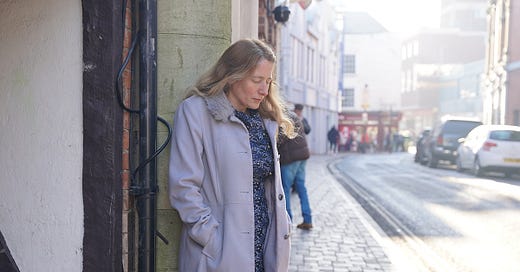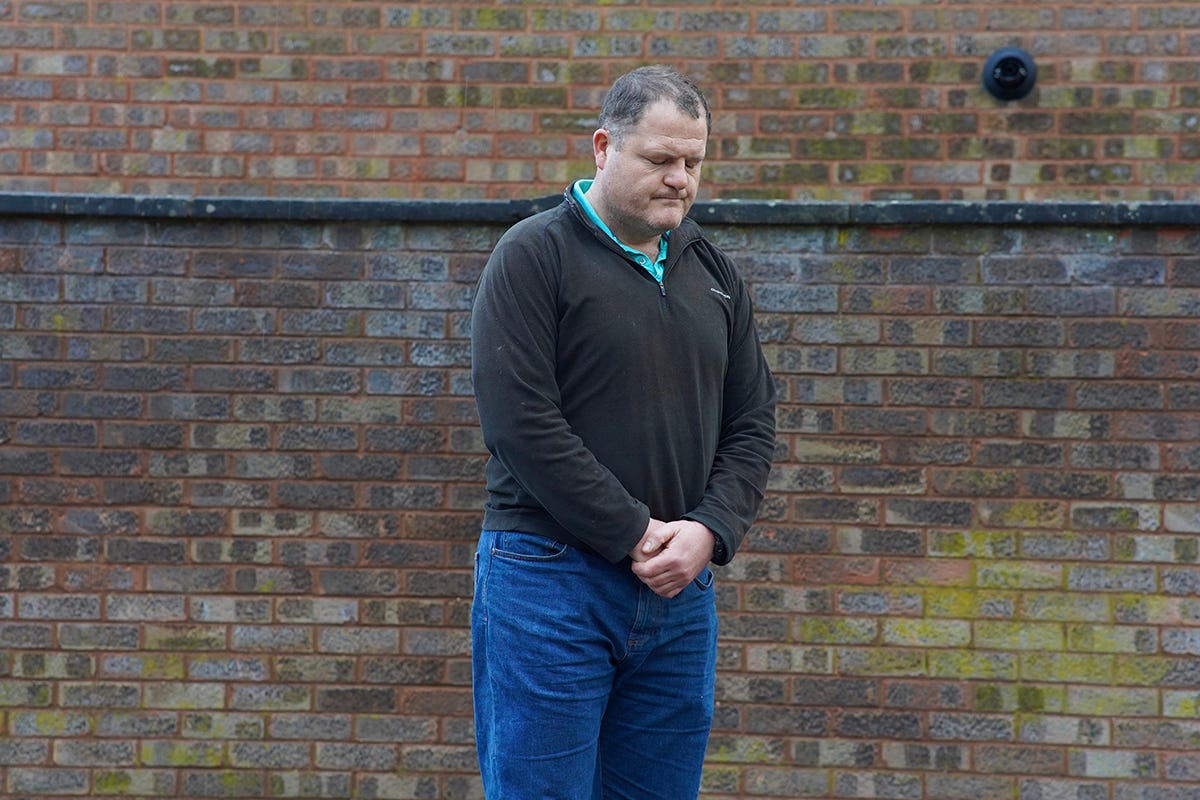
Emma has strong feelings about abortion: She wears T-shirts that say things like “Pro-life and Proud.” A devout Catholic, she is a trustee of a pro-life activism group and regularly holds planning meetings at her flat in Edinburgh, Scotland. On her way to work at an office in the center of town, the 24-year-old passes the abortion facility at nearby Chalmers Hospital. Sometimes, she prays with rosary beads as she walks by.
But now she’s worried she could get arrested in her neighborhood—for wearing that T-shirt, for holding those meetings, or even for praying in her head.
On October 4, Emma, who asked not to be named, got a letter from the Scottish government. Addressed “Dear Resident,” its purpose was to alert her that her home, due to its proximity to the hospital, is now in an abortion censorship zone.
This is due to the UK’s brand-new “Safe Access” law, which came into effect September 24 and made it a criminal offense to do anything within 200 meters of an abortion facility that could “influence” someone’s decision to access, provide, or facilitate an abortion. In the Scottish government’s letter, Emma read that even “activities in a private place (such as a house) within the area could be an offence if they can be seen or heard within the Zone and are done intentionally or recklessly.”
“You can report a group or an individual that you think is breaking the law,” the letter added, before providing instructions on how to do so.
Emma couldn’t believe her eyes. The law carries a maximum fine of £10,000 (over $13,000). In June, it passed in The Scottish Parliament by 118 votes to one, following in the footsteps of Northern Ireland, which became the first country in the UK to enforce abortion censorship legislation last year. The rest of the UK is doing the same: On October 31, a similar law will come into effect in England and Wales; it was passed by Parliament in 2023. In these countries, the fine will be unlimited.
All of this legislation codifies—on a national level—a trend that has been creeping across the UK for a decade. Ten years ago, in 2014, Parliament empowered local councils to create and police their own antisocial behavior laws. The intention was to enhance “the professional capabilities and integrity of the police.” But since 2018, five UK districts have used these powers to aggressively limit what people can do, say, and even think, near abortion clinics. I spoke to four people who have fallen afoul of these restrictions, and a disturbing pattern emerged.
In November 2022, Adam Smith-Connor, now 51, a physiotherapist and veteran, was interrogated by local authorities in Bournemouth, on the south coast of England, which had recently introduced an abortion censorship zone. His alleged crime was silently praying for three minutes while 50 meters from an abortion clinic. When council officers asked, “What is the nature of your prayer?” he replied: “I am praying for my son who is deceased,” referring to his unborn child that he and his then-girlfriend decided to abort two decades ago.
Smith-Connor was charged with breaching the censorship zone. Earlier this month, on October 16, he was convicted and ordered to pay £9,000 (roughly $11,700) toward the prosecution’s legal fees. He set up a page on a crowdfunding website, which raised the fee within hours. He and the lawyer supporting him are considering an appeal.
The same day, also in Bournemouth, the trial of Livia Tossici-Bolt was due to begin. The retired scientist, who’s 64, faces the same charges as Smith-Connor, but her alleged offense is standing outside an abortion clinic in March 2023 with a sign that simply read: “Here to talk, if you want.” (Her trial was postponed to March 2025, to give both legal teams time to consider the implications of Smith-Connor’s verdict.)
Around the same time, in Birmingham—the UK’s second-largest city—Isabel Vaughan-Spruce, 47, was arrested for silently praying outside an abortion clinic. (More about her case later.)
Watch Vaughan-Spruce tell her story below:
Meanwhile Father Sean Gough, 34, was charged with two counts of silent prayer in the same city, as well as parking near an abortion clinic with an “Unborn lives matter” bumper sticker, and holding a sign that read: “Praying for free speech.”
And just over a year ago, in October 2023, a pro-life volunteer named Patrick Parkes, 57, was praying silently outside an abortion clinic in Birmingham when police threatened him with a fine.
Their instruction to him? “Kindly move elsewhere outside the exclusion zone where you’ve got your human rights.”





